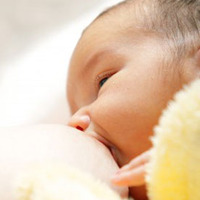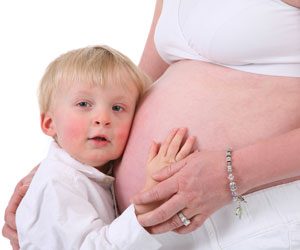 Is it safe to during alcohol while breastfeeding? For the most part, women will abstain from drinking alcohol during pregnancy in order to provide the best start in life for their baby. However, once your baby is born, you may wish to enjoy a drink with a meal, when out with friends or on a special occasion.
Is it safe to during alcohol while breastfeeding? For the most part, women will abstain from drinking alcohol during pregnancy in order to provide the best start in life for their baby. However, once your baby is born, you may wish to enjoy a drink with a meal, when out with friends or on a special occasion.
Does alcohol pass into breast milk?
The simple answer is YES! Alcohol passes freely from your bloodstream to your breast milk. When drinking, the level of alcohol in your breast milk is the same as your blood alcohol level.
How long the alcohol remains in your bloodstream depends on a number of factors, including your weight, how many standard drinks you have, how fast you drink, and whether you consume food and water while drinking. As a guide though, it will take a woman’s body an average of two hours to clear the alcohol from one standard drink out of her system and her breast milk.

What is a ‘Standard Drink’
The standard drink contains approximately 12.5 ml (or 10 g) of alcohol. Given the alcohol content of different beverages varies, so does the amount of each that constitutes a standard drink.
The Australian Drug Foundation defines one standard drink as equivalent to the following:
- 375 ml can or bottle of mid-strength beer
- 285 ml glass of full strength beer (the smaller of the two beer glasses in bars)
- 100 ml glass of white or red wine – Beware: restaurant glasses contain 180 ml
- 30 ml of spirits (referred to as a nip or shot)
- 60 ml glass of fortified wine (port, sherry etc)
- 275ml pre-mixed cooler (5% alcohol) – Beware: with between 5% and 8% alcohol, a 375ml can could equate to up to 2.4 drinks
What effect does alcohol have on a baby?
The negative effects of alcohol on the human body are well documented. These include immediate effects like altered perception and slowed reflexes, as well as long term and permanent effects like the destruction of brain cells. It is these negative effects which have formed the basis for recommendations on alcohol consumption made by a broad range of national organisations.
Because the amount of alcohol in your blood is the same as that in your breast milk, your baby’s much more fragile body faces the same effects as your own. Babies who regularly consume breast milk laced with alcohol tend to be slower to develop than their alcohol-free peers. In addition, studies have shown that babies drink less alcoholic breast milk than ‘virgin’ breast milk. If you drink regularly, this could affect your supply and your baby’s nutrition.
Strategies to protect your baby from alcohol
If you intend to drink, it makes good sense to plan ahead to minimise the effects on your baby.
Expressing and freezing breast milk could enable you to take a night off from breastfeeding for a special event, without concern for effects of alcohol on your baby. Remember that to maintain your supply, you may need to express and discard your breast milk (sometimes called ‘pump and dump’).
If your baby is in a fairly established feeding routine, feeding your baby before having that glass of wine could help to ensure that the alcohol has left your system before you need to feed again. That said, babies are not always good at sticking to schedules so it may be wise to have a back-up option available.
If you find you have consumed more alcohol than you intended, and have no stored breast milk available, one option may be to provide your baby with a formula bottle. That said, the Australian Breastfeeding Association maintains that breast milk laced with alcohol is still better for baby than formula.
Other effects of alcohol while breastfeeding to consider
In addition to the possible effects on your own health and that of your baby, the safety issues of consuming alcohol must be considered. Even if you employ strategies to avoid your baby consuming alcoholic breast milk, your ability to effectively and competently care for your baby diminishes swiftly the more alcohol you drink.
An important point to remember is to NEVER sleep with you baby if you have consumed alcohol. It only takes a subtle shift in your conscientiousness to place your baby in danger of a sleeping accident. If you have consumed alcohol, sleep your baby safely in their own cot/bed.
Does this mean I can’t drink at all while breastfeeding?
Like everything in parenting, whether to drink or not drink when breastfeeding is a personal choice. However the point that is probably more important to consider is how often you intend or wish to drink.
An odd standard glass of Champaign for a special occasion now and then is unlikely to have long term ill-effects on your baby. However the potential effects of drinking regularly can’t be ignored.
Where to go for help
If you feel you have a problem with alcohol, the following organisations may be able to assist you:
- Drink Wise Australia (www.drinkwise.org.au)
- Alcoholics Anonymous (www.aa.org.au)
- Ted Noffs Foundation (www.noffs.org.au)
- Turning Point (www.turningpoint.org.au)
Reviewed 23rd August 2020


Recent Comments